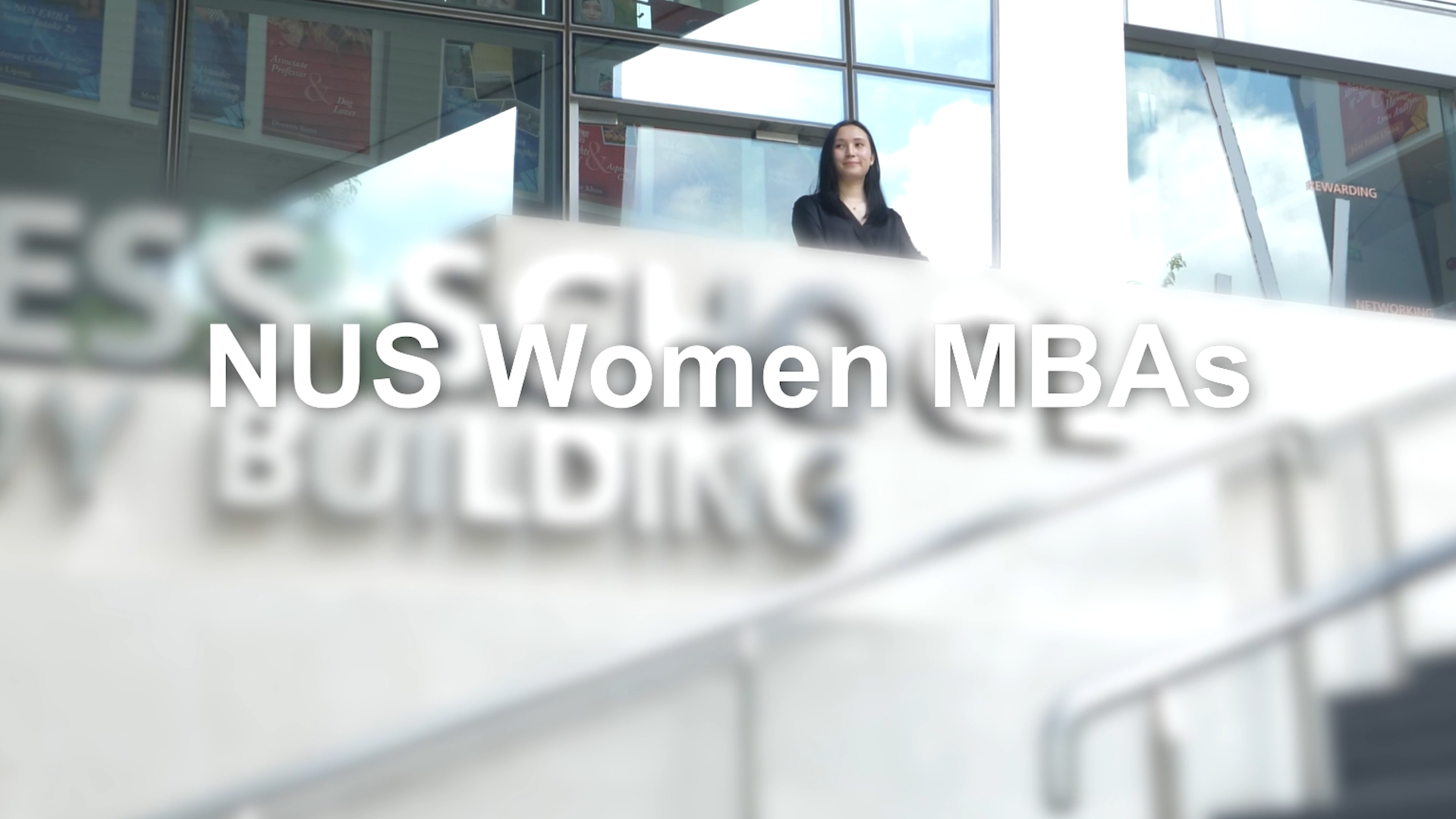Women representation in The NUS MBA
This International Women’s Day, we celebrate all the remarkable women of The NUS MBA and their strength in handling the many roles in life each day, while juggling work, family and an MBA. Hear from four of our students as they reflect on their experiences, aspirations and current journeys as women MBAs.
Women in MBA programmes: The global context
Globally, women remain underrepresented in MBA programmes. However, significant progress has been made in recent years. In 2021, the number of women in MBA programmes reached an all-time high. That year, the Forté Foundation, a nonprofit organization dedicated to gender equity in business, reported that women constituted 40% of students among member schools. Beating the average, The NUS MBA has 43% women in its 2022 full-time MBA cohort. Accelerating the upward trend is crucial as women bring unique perspectives and leadership qualities that can enhance the business landscape.
Stella Ma Yuhan, from The NUS MBA Class of 2022, is among the increasing number of women not letting barriers hold her back. She is a commercial lawyer and, like many of her classmates, is a mother. Most women decide to do an MBA to enhance their professional credibility, increase their income, change careers, or advance their existing careers. Stella had an additional motivation to pursue an MBA, to be a role model for her daughter: “I want to show her that I can work as well as take care of kids. I can bring what I learned at school to share with her.”
One of the most rewarding aspects of business school is interacting with other students and following a dynamic curriculum. Those experiences are enhanced when classmates have shared characteristics, especially gender.
“There’s a large amount of female representation in the student body, and I think it’s enriched my learning experience,” says Francesca Katrina Tankiang from The NUS MBA Class of 2023. “I’ve been able to meet other females from professional backgrounds completely different from mine. … I got to interact with a lot of part-time students, and a lot of them are actually mothers. Raising children and still attending to a full-time job while attending business school. So that’s been very inspirational for me.”
What can MBA programmes do to empower women?
To attract more women into MBA programmes and set them up for success during (and after) their studies, business schools can implement a number of measures. A top measure is to increase the number of female faculty members. Notably, in the recent Financial Times Global MBA Rankings, NUS Business School’s ratio of female faculty, at 35%, was the second highest among top MBA programmes in Asia.
Empowering women can also involve providing non-material support, such as increasing the programme’s flexibility to accommodate MBA students who are balancing school, work, and family responsibilities.”
For Stella, the flexibility of the NUS MBA programme made all the difference. She shares, “When I was applying for the NUS MBA, they told me that, ‘Our curriculum is very flexible.’ It means that as a mother, if I really need help, I need to spend more time with my family, I can adjust my modules.”
Another effective way to empower women in MBA programmes is to lower the financial barriers to entry. NUS Business School, for instance, offers the NUS MBA Scholarship for Women, for exceptional female candidates who have shown remarkable leadership and dedication to promoting women’s advancement. In addition, scholarship recipients collaborate with the programme team to encourage more female MBA hopefuls to pursue their ambitions.
Building community & dreaming big in the NUS MBA
Next to flexibility and financing, building community is also a powerful tool to empower women in their MBA journeys. The NUS MBA Diversity and Inclusion Club is a student-led committee fostering a community for young female leaders along with those from the LGBTQI+ and disabled communities.
Increasing the visibility of women in business education and the wider business world makes a difference.
Whether you’re a mother or a working woman (or both!), pursuing an MBA should not remain an unrealistic fantasy. As NUS MBA student Lina Ichiki says, “Even if you become a mother… it’s always good to pursue your dream. It’s always good to be honest about what you really want and what you’re really passionate about.”
NUS Business School is dedicated to providing its female students an inclusive and supportive environment. By offering financial assistance, fostering a sense of community, and promoting diversity and inclusion, the School aims to create an environment where women can thrive in their MBA journey.
This article is an adapted version of the original article, “Increasing women in MBA programs: The NUS MBA’s push for parity” by MBAGRADSCHOOLS.


